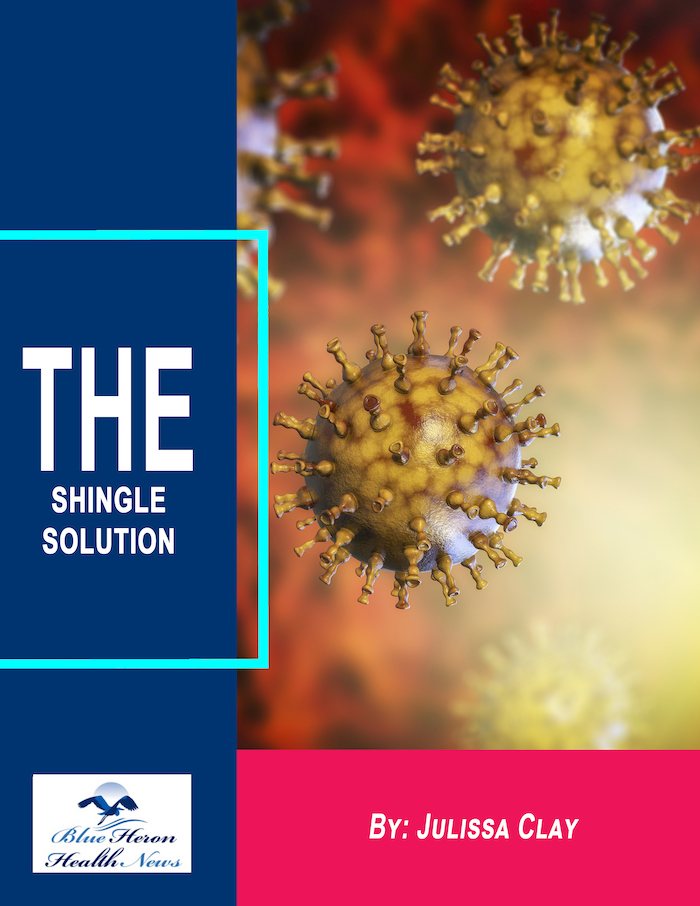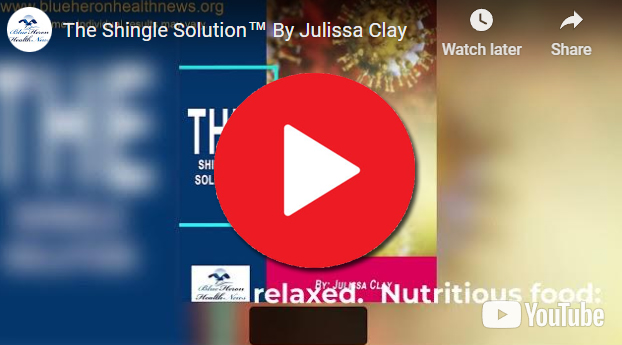
The Shingle Solution™ By Julissa Clay This eBook includes a program to treat the problem of shingle naturally. The author of this eBook, Julissa Clay, a practitioner in natural health, has killed the shingles causing virus completely to overcome the problem of PHN or Postherpetic neuralgia, one of the common complications caused by shingles. This program helps in melting PHN in a few weeks and make shingles a forgotten nightmare.
What are the complications of shingles?
Shingles, or herpes zoster, can lead to various complications, some of which can be severe and long-lasting. These complications can arise during the active phase of the shingles outbreak or afterward, particularly if the condition is not properly managed. Here is an in-depth look at the potential complications of shingles:
1. Postherpetic Neuralgia (PHN)
Description:
- Chronic Pain: PHN is the most common complication of shingles, characterized by severe, persistent pain in the area where the shingles rash occurred.
- Duration: This pain can last for months or even years after the rash has healed.
Risk Factors:
- Older age
- Severe initial pain
- Large area of rash
Impact:
- Quality of Life: PHN can significantly affect daily activities, sleep, and overall quality of life.
- Mental Health: Chronic pain from PHN can lead to depression, anxiety, and social isolation.
2. Secondary Infections
Description:
- Bacterial Infections: The blisters caused by shingles can become infected with bacteria, leading to conditions such as cellulitis or impetigo.
Symptoms:
- Increased redness, warmth, and swelling
- Pus or drainage from the blisters
- Fever and other systemic symptoms
Management:
- Antibiotics: Treatment typically involves antibiotics to clear the bacterial infection.
- Hygiene: Keeping the affected area clean and dry to prevent infections.
3. Ophthalmic Shingles (Herpes Zoster Ophthalmicus)
Description:
- Eye Involvement: Shingles can affect the eye if the varicella-zoster virus reactivates in the ophthalmic branch of the trigeminal nerve.
Symptoms:
- Pain and redness in the eye
- Swelling of the eyelids
- Blisters on the eyelids and around the eye
Complications:
- Keratitis: Inflammation of the cornea, which can lead to vision impairment.
- Uveitis: Inflammation of the uvea, which can cause eye pain and redness.
- Glaucoma: Increased pressure in the eye, potentially leading to vision loss.
- Permanent Vision Loss: Severe cases can result in blindness if not treated promptly.
Management:
- Antiviral Medications: Early treatment with antivirals to prevent severe complications.
- Steroid Eye Drops: To reduce inflammation.
- Regular Eye Exams: Monitoring by an ophthalmologist.
4. Neurological Complications
Description:
- Meningitis: Inflammation of the membranes surrounding the brain and spinal cord.
- Encephalitis: Inflammation of the brain itself.
- Myelitis: Inflammation of the spinal cord.
Symptoms:
- Severe headache
- Fever
- Stiff neck
- Confusion or altered mental state
- Weakness or paralysis
Management:
- Hospitalization: Often required for severe neurological complications.
- Intravenous Antivirals and Steroids: To reduce inflammation and viral replication.
5. Ramsay Hunt Syndrome
Description:
- Facial Nerve Involvement: Occurs when the varicella-zoster virus affects the facial nerve near one of the ears.
Symptoms:
- Severe ear pain
- Facial paralysis on one side
- Hearing loss
- Tinnitus (ringing in the ear)
- Rash around the ear, mouth, face, or neck
Complications:
- Permanent Facial Weakness: If not treated promptly.
- Hearing Loss: Which may be temporary or permanent.
Management:
- Antiviral Medications: Early treatment is crucial.
- Corticosteroids: To reduce inflammation and swelling.
- Physical Therapy: To help regain muscle function.
6. Disseminated Zoster
Description:
- Widespread Rash: Occurs when the shingles rash spreads over a larger area of the body or to other organs.
- Immunocompromised Patients: More common in individuals with weakened immune systems, such as those with HIV/AIDS or undergoing chemotherapy.
Complications:
- Internal Organ Involvement: Can affect the lungs, liver, brain, and other organs, leading to severe complications.
Management:
- Hospitalization: Often required for severe cases.
- Intravenous Antivirals: To control the viral spread.
- Supportive Care: For affected organs.
7. Hearing and Balance Problems
Description:
- Inner Ear Involvement: Shingles can affect the inner ear, leading to hearing loss and balance issues.
Symptoms:
- Hearing loss
- Dizziness or vertigo
- Tinnitus
Complications:
- Permanent Hearing Loss: If not treated promptly.
Management:
- Medications: To reduce inflammation and viral activity.
- Audiological Assessment: Regular hearing tests to monitor and manage hearing loss.
8. Scarring and Skin Discoloration
Description:
- Skin Changes: The blisters and rash from shingles can leave scars and areas of skin discoloration once they heal.
Complications:
- Cosmetic Concerns: These changes can be permanent and may cause cosmetic concerns.
Management:
- Topical Treatments: Creams and ointments to reduce scarring.
- Dermatological Procedures: Such as laser therapy for more severe cases.
9. Psychological and Emotional Impact
Description:
- Mental Health: Chronic pain and the physical discomfort of shingles can lead to significant psychological stress.
Symptoms:
- Depression
- Anxiety
- Sleep disturbances
Complications:
- Reduced Quality of Life: Ongoing psychological stress can affect overall well-being.
Management:
- Counseling and Therapy: Psychological support to manage emotional impact.
- Support Groups: Connecting with others who have had shingles can provide emotional support.
Prevention and Vaccination
Vaccination:
- Shingles Vaccine (Shingrix): Recommended for adults aged 50 and older, and for those with weakened immune systems.
- Effectiveness: Reduces the risk of developing shingles and its complications.
General Prevention:
- Healthy Lifestyle: Maintaining a strong immune system through a healthy diet, regular exercise, and stress management.
- Prompt Treatment: Seeking early treatment at the first signs of shingles to reduce the severity and prevent complications.
Conclusion
Shingles can lead to various complications, ranging from chronic pain and secondary infections to severe neurological and ocular issues. The most common complication is postherpetic neuralgia, but other serious conditions include bacterial infections, vision loss, and hearing problems. Early diagnosis and prompt treatment with antiviral medications, pain management, and supportive therapies are crucial in preventing and managing these complications. Vaccination with the shingles vaccine is highly recommended to reduce the risk of developing shingles and its associated complications. Always consult with a healthcare provider for appropriate diagnosis and treatment if you suspect you have shingles or are experiencing complications.

The Shingle Solution™ if you are suffering from shingles then The Shingle Solution can be the best program for you to relieve your pain and itching by using a natural remedy. It describes the ways to use this program so that you can feel the difference after using it as directed. This natural remedy for shingles can also help in boosting your immune system along with repairing your damaged nerves and relieve pain and itching caused by shingles.